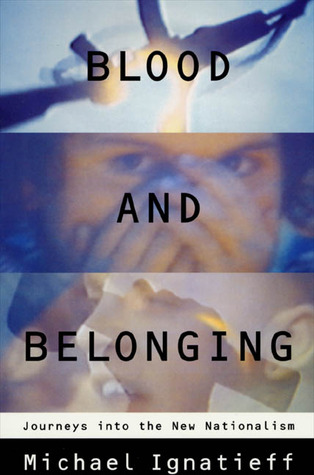Is ethnic nationalism still a German idea?
Blood and belonging, the most famous book of historian and former head of Canadian Liberal Party Michael Ignatieff, is a fabulous overview of nationalism in these days (no matter it was written almost twenty years ago). The author visits six countries or regions where very different nationalist movements are highly significant. Ignatieff describes his meetings with all kind of people, either political leaders or just citizens. The second chapter, which is focused in an Ignatieff´s journey to Leipzig and Frankfurt, presents the paradox of the German nationalism once the wall fell down.

If France is the birthplace of civic nationalism –the one that puts citizens in front of traditions-, Germany is the analogous of ethnic nationalism. This is defined by considering a nation “that community of people who share the same cultural values, traditions or language”. Events that took place in Germany after the Second World War showed ethnic nationalism hadn’t ended with Hitler, but instead it was and is deeply rooted in German society.
Those who lived in the east of the country were –for external reasons- considered citizens of a socialist state living with a border separating them of their relatives or friends who stayed in the other state of Germany –the really democratic one-. The collapse of Soviet Union in 1989 was the perfect opportunity for Germans to live together again under the rule of a same state –‘the big Germany’-. Ignatieff finds in the early nineties that strong feeling of membership to a same cultural community as intense in Leipzig –one of the main symbols of the communist Germany- as he did in cosmopolitan Frankfurt. Germans are Germans no matter what. Anyone can find a paradox in that situation just because it seemed that the Third Reich´s defeat would have meant their renunciation of the so-German ethnic nationalism.
All of this makes me compare this reality with the Spanish one in order to figure out which one of the two models of nationalism is the most consolidated here. Spanish nationalism is probably a ‘third way’ between civic and ethnic, but there is no important movement that promotes it; we should probably say that Spanish nationalism exists but it is shown in a low intensity. For most of the Spaniards, there is an important feeling of belonging to a community; some of them because of a shared culture and past, others because of a state of liberties and a democracy.
However, the most important and strongest feelings of membership we can find are more regional than national. Basque and Catalan movements are good examples of ethnic nationalism because they are built over those values and tradition that make them different from the rest of the Spaniards. Nevertheless, we can find very big differences between the German concept of nationalism and the Basque and Catalan ones. In the last fifty years, Germans have achieved to transform their nasty ethnic nationalism into something new –more open to concepts like citizenship- without losing its essences in culture and tradition. Otherwise, regional “national” movements –like Basque or Catalan- still maintain an old-fashioned ideology, a classic vision of ethnic nationalism, which has caused so many wars and deaths all over the world in the last two centuries just because saying that you belong by blood to a community means there are people who do not, so they are worse, and you are entitled to fight against them.
Like in everything, Germans have showed they learn of their mistakes and they have built a new discourse of patriotism –better than nationalism- which keeps the best notions of ethnic nationalism but within a pluralist democracy in a world that has nothing in common with the age of ideologies. That makes me wonder if ethnic nationalism is still a German idea.
Adrián Ibáñez Crespo